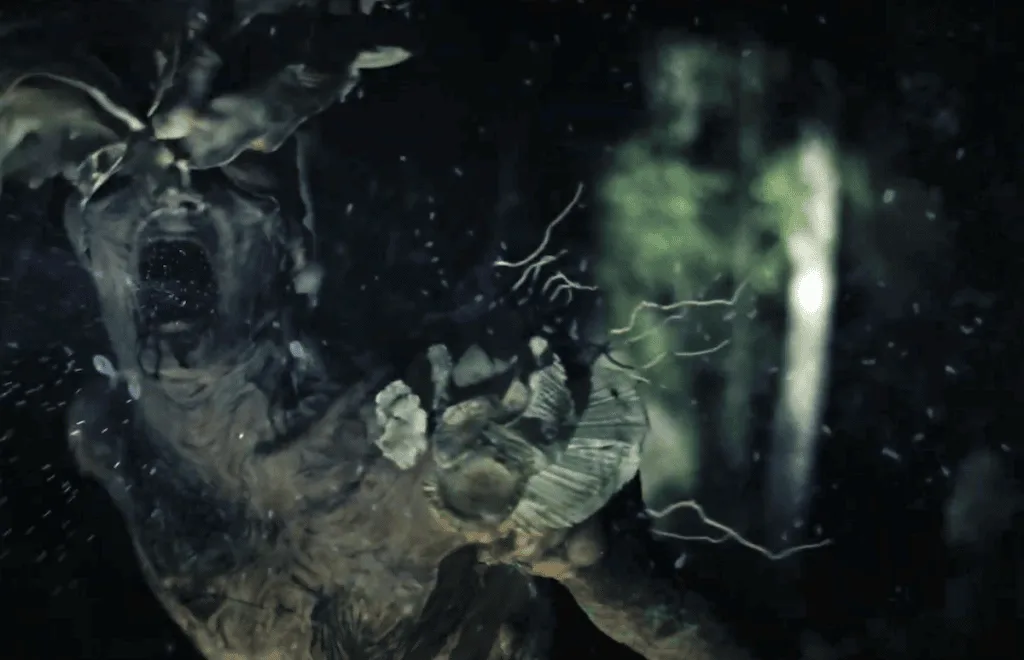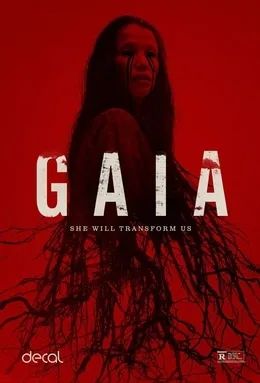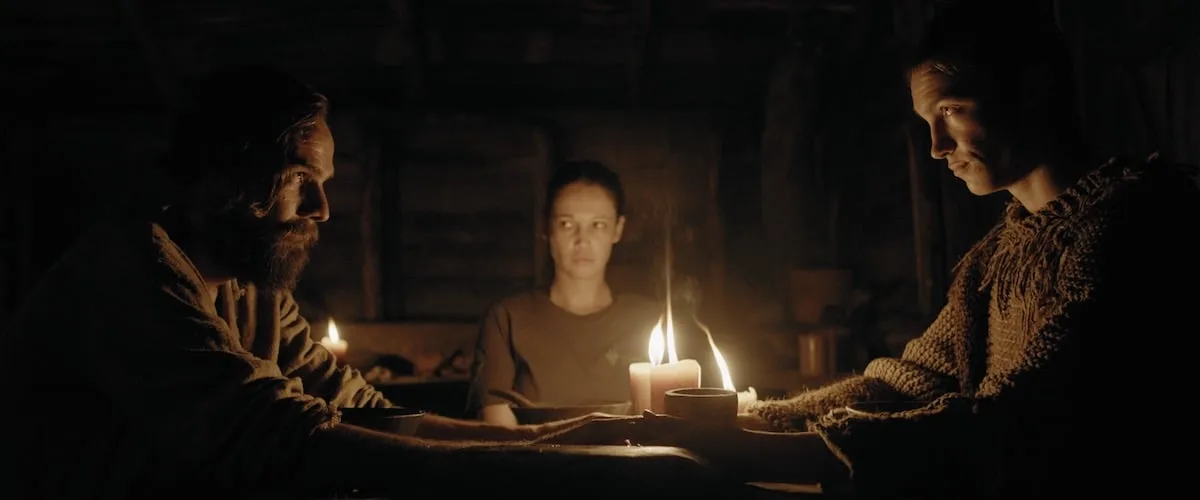
It’s perhaps little surprise, as discourse about man’s relationship with the natural world becomes more and more urgent, that the phenomenon of ‘eco-horror’ is appearing more on screens, too. Whilst audiences have long been warned not to go into the woods, it’s the natural world itself which now poses the threat. But Gaia (2021) is a little more complicated than that, offering a mysterious culture and practices of its own, navigable only by a tiny number of adherents to a new, pantheistic system. The worldview which it weaves is by turns beautiful and ghastly.
Two rangers, Gabi (Monique Rockman) and Winston (Anthony Oseyemi) are undertaking surveillance in an unexplored area of forest in a region of South Africa. Their use of a drone to record and explore – right up until this technology fails them – is a useful indicator of what’s to follow. The two rangers become separated and it seems they’re not alone here, either: Gabi accidentally sets off an animal trap set by father and son Barend (Carel Nel) and the nearly-mute Stefan (Alex van Dyk). Her leg is badly injured, but when they realise what has happened, Barend and Stefan take her in. Theirs is a strange, insular lifestyle; it’s an extreme version of living off grid, something triggered by the loss of Stefan’s mother to cancer some years before. But the forest is more than beloved to them for her memory’s sake, as it seems these two have a belief system of their own out here, and Gabi’s presence is very soon a complicating factor. Before she can heal up and move on, though, something which Barend is very keen on, Gabi is confronted by what is out there in the forest, and the claims it makes on Barend and Stefan.

Gaia could have worked perfectly well as an intense character study, looking at what isolation has brought to bear on these two men and the implications of welcoming an outsider – particularly given the impact of sex and sexuality here, a theme which persists throughout. But there is a great deal more here, a very meticulous and appealing, if horrific mythos where the forest itself dictates human behaviour, demanding sacrifices, or very literally consuming people. This process resembles those eco-friendly ‘mushroom suits’, a great idea which is nonetheless very creepy, or in some respects the Arcimboldo paintings from the Renaissance era, but with a much headier, trippier and nastier edge to it – the unwilling absorption of body and mind is not a pleasant thing to see.
It seems that as we learn more about the impact of fungal spores on ecosystems, we find ourselves with more scope to interpret this process as invidious, and a great opportunity for a horror story; the cultural links between mushrooms and poisons, as well as hallucinogenics, are also ripe for use. It’s no doubt just unfortunate timing that Gaia has appeared so soon after Ben Wheatley’s film In The Earth; on paper, and in some respects in how they are directed, there are many similarities. However, where In The Earth is quite raw in places, with black humour cropping up throughout, Gaia is altogether more intricate and intimate, with nature itself choc-full of that blind, pitiless indifference we’re so afraid of – a Mother Nature who exploits, as well as nurtures. By the end of the film, you’ve been shown a worldview where people are fast becoming obsolete. It takes its time, but it’s pretty damning.
Gaia (2021) screened as part of Arrow Video FrightFest 2021.
